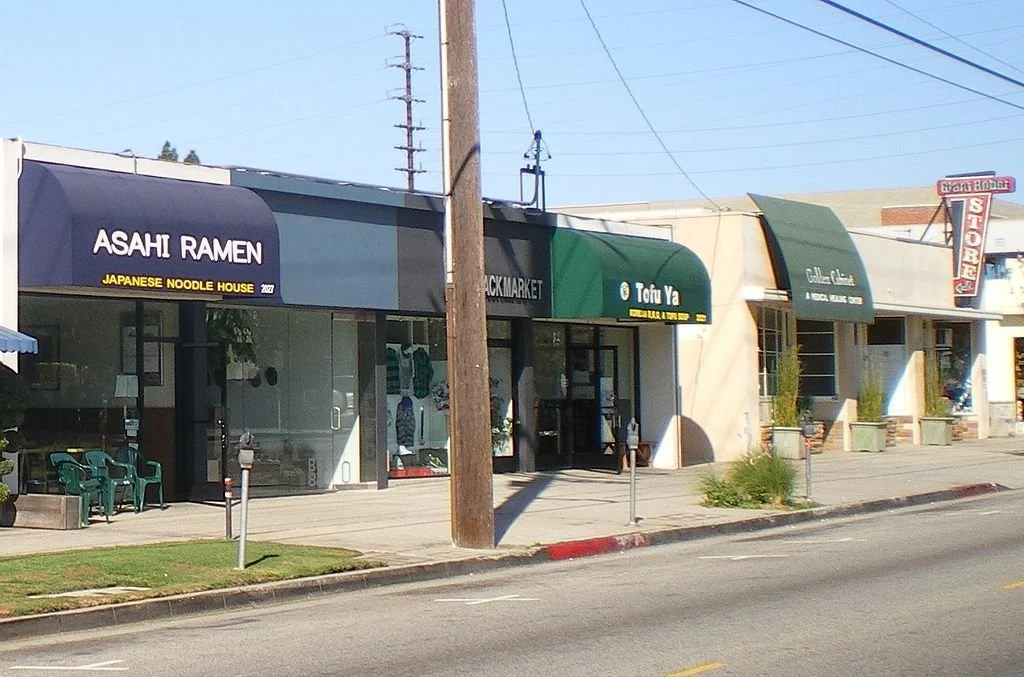APA Guidelines for Ethical Therapy in West Los Angeles, CA
Ethical practice is the cornerstone of effective psychotherapy, ensuring that clients in West Los Angeles, CA receive compassionate, professional care guided by the highest standards. The American Psychological Association (APA) issues comprehensive guidelines to help therapists maintain ethical integrity and protect the welfare of those they serve. For businesses like TLA Therapy, adherence to these principles not only fosters trust but empowers clients to pursue growth in a safe, respected environment.
Foundations of APA Ethical Principles
The APA's Ethical Principles of Psychologists and Code of Conduct outlines values expected of all practitioners. Central to these principles are respect for people's rights and dignity, beneficence and nonmaleficence, fidelity and responsibility, integrity, and justice. In practice, this means therapists must always prioritize client welfare, avoid harm, ensure confidentiality, and treat every client fairly regardless of background, beliefs, or identity. These foundational values guide daily decision-making and reinforce the trust clients place in their therapists.
Eric C Gardner, CC BY-SA 4.0, via Wikimedia Commons
Informed Consent and Client Rights
A fundamental aspect of ethical therapy is obtaining informed consent. Therapists at TLA Therapy ensure clients fully understand the nature, goals, costs, and potential risks of psychotherapy before treatment begins. This includes clear discussion about therapy methods, privacy, record maintenance, and lawful exceptions to confidentiality. Honest communication honors client autonomy and builds a respectful, transparent partnership essential for any therapeutic setting in West Los Angeles.
Maintaining Confidentiality and Privacy
Protecting confidentiality lies at the heart of APA ethics. Private information shared during therapy must remain secure unless permitted by the client or required by law. Therapists in California must also comply with state laws and regulations governing confidentiality and mandatory reporting. At TLA Therapy, strict confidentiality policies create an environment of trust, helping clients feel supported in exploring sensitive emotional issues.
Navigating Dual Relationships and Boundaries
West Los Angeles’ close-knit professional and social circles can sometimes blur personal and professional boundaries. The APA emphasizes avoiding dual relationships that could compromise neutrality or harm clients. TLA Therapy upholds strict boundary standards, ensuring objectivity and professionalism are never in question, thereby safeguarding both the therapeutic process and client well-being.
Competence and Continuing Education
Delivering ethical therapy requires a continued commitment to learning. The APA advises therapists to practice only within their areas of competence and pursue further education as needed. West Los Angeles therapists often serve diverse populations with complex needs, making continuing education crucial. TLA Therapy encourages professional growth through ongoing training and peer consultation to maintain a high standard of care.
Cultural Sensitivity and Non-Discrimination
The APA recognizes cultural awareness as essential to ethical therapy. In a diverse community like West Los Angeles, therapists must understand and respect cultural, ethnic, and social differences to provide equitable care. Resources from the APA, such as those exploring cultural competence in psychotherapy, support therapists in developing inclusive, culturally informed approaches. At TLA Therapy, cultural sensitivity ensures every client feels valued and understood, fostering stronger therapeutic connections.
Ethical Decision-Making and Consultation
Complex ethical questions can arise in clinical practice. The APA encourages therapists to consult peers, ethical boards, or professional resources to make informed decisions. In a fast-evolving environment like West Los Angeles—where technology, culture, and policy shift rapidly—ethical consultation helps maintain integrity and consistency across all client services.
Record Keeping and Documentation
Proper record keeping ensures both legal compliance and continuity of care. The APA’s standards require therapists to create and store documentation with accuracy and confidentiality. At TLA Therapy, meticulous record-keeping practices reflect transparency and accountability, promoting effective collaboration between clients and therapists throughout their treatment journey.
Reporting Obligations and Protecting Welfare
APA guidelines clarify conditions under which confidentiality may be limited, such as threats of harm or cases involving child or elder abuse. West Los Angeles therapists must stay aware of local reporting laws and handle these sensitive situations with care and ethical precision. At TLA Therapy, these safeguards exist to protect every client’s welfare while maintaining therapeutic trust.
Promoting Trustworthy, Ethical Therapy in West Los Angeles, CA
TLA Therapy is dedicated to upholding APA ethical principles in every session, ensuring that clients in West Los Angeles receive psychotherapy grounded in respect, confidentiality, and unwavering professional integrity. For individuals seeking compassionate, evidence-based care rooted in ethical excellence, TLA Therapy provides a safe space for growth, understanding, and healing.
Honoring History: Sawtelle Japantown’s Roots and Resilience
Sawtelle Japantown in West Los Angeles stands as a living testament to Japanese American heritage and the enduring spirit of immigrant communities. While its lively restaurants and boutique shops attract crowds today, the area’s resilience is rooted in decades of perseverance, civic engagement, and cultural pride. Sawtelle Japantown brings together historic institutions, thriving small businesses, and local organizations to ensure the story of its past endures for future generations.
Early Foundations and Immigration
Japanese immigrants, or Issei, began settling in Sawtelle in the early 1900s, drawn by the mild climate, fertile soils, and support from the local Kenjinkai organizations. Facing exclusion from neighborhoods such as Brentwood and Bel Air, these pioneers found community and opportunity along Sawtelle Boulevard, establishing nurseries, florists, grocery stores, and a Japanese language school. Many of these enterprises provided stability and a sense of belonging despite restrictive laws like the California Alien Land Law of 1913.
Support came from community groups such as the Japanese Institute of Sawtelle, which preserved cultural practices, taught language, and hosted seasonal festivals, cementing Sawtelle’s role as a cornerstone for Japanese American life.
Wartime Upheaval and Postwar Recovery
World War II marked a devastating chapter. Japanese American families, including those of Sawtelle, were uprooted and sent to internment camps such as Manzanar. Businesses shuttered; homes were lost. However, after the war, many returned and worked to rebuild what was left. Community anchors like the West Los Angeles Buddhist Temple and West LA United Methodist Church became centers for restoration and generational memory, fostering traditions that still bind Sawtelle residents together.
Contemporary Japantown: Recognition and Growth
In 2015, the Los Angeles City Council officially recognized Sawtelle Japantown, honoring decades of advocacy by the Sawtelle Japantown Association and local historians. Organizations such as the Japanese American National Museum and neighboring Little Tokyo have partnered with Sawtelle Japantown to protect heritage sites and support educational programming.
Modern Sawtelle features businesses like Nijiya Market, the J-pop emporium Giant Robot, and top-tier ramen shops, infusing the area with both tradition and innovation. These local enterprises keep the community spirit strong while drawing new generations to explore its unique history.
Businesses and Organizations Shaping Resilience
Legacy and innovation thrive side-by-side in today’s Sawtelle. The Japanese Institute of Sawtelle and the Sawtelle Japantown Association provide vital resources, from cultural events and workshops to language classes and matsuri festivals. Their efforts, combined with support from civic groups and business owners, ensure that cultural traditions stay central to everyday life.
Community gatherings—whether food fairs, walking tours, or group workshops—echo the benefits of connecting with others in safe, welcoming spaces, much like the value found in supportive group environments where individuals build understanding and encourage one another amidst life’s transitions.
Sawtelle Japantown: Lasting Impact in West Los Angeles, CA
Today’s Sawtelle Japantown is a vibrant, welcoming gathering place where past and present merge. Trendy apartment buildings rise beside long-standing cultural pillars, reflecting ongoing renewal in West Los Angeles. Visitors enjoy authentic cuisine, walk historic corridors, and witness the resilience that continues to inspire pride across the region.
The legacy of Sawtelle Japantown endures, inspiring future generations to seek connection, restoration, and growth on their own journeys—reminding us that every community’s story is strengthened by compassion, support, and the process of healing.






